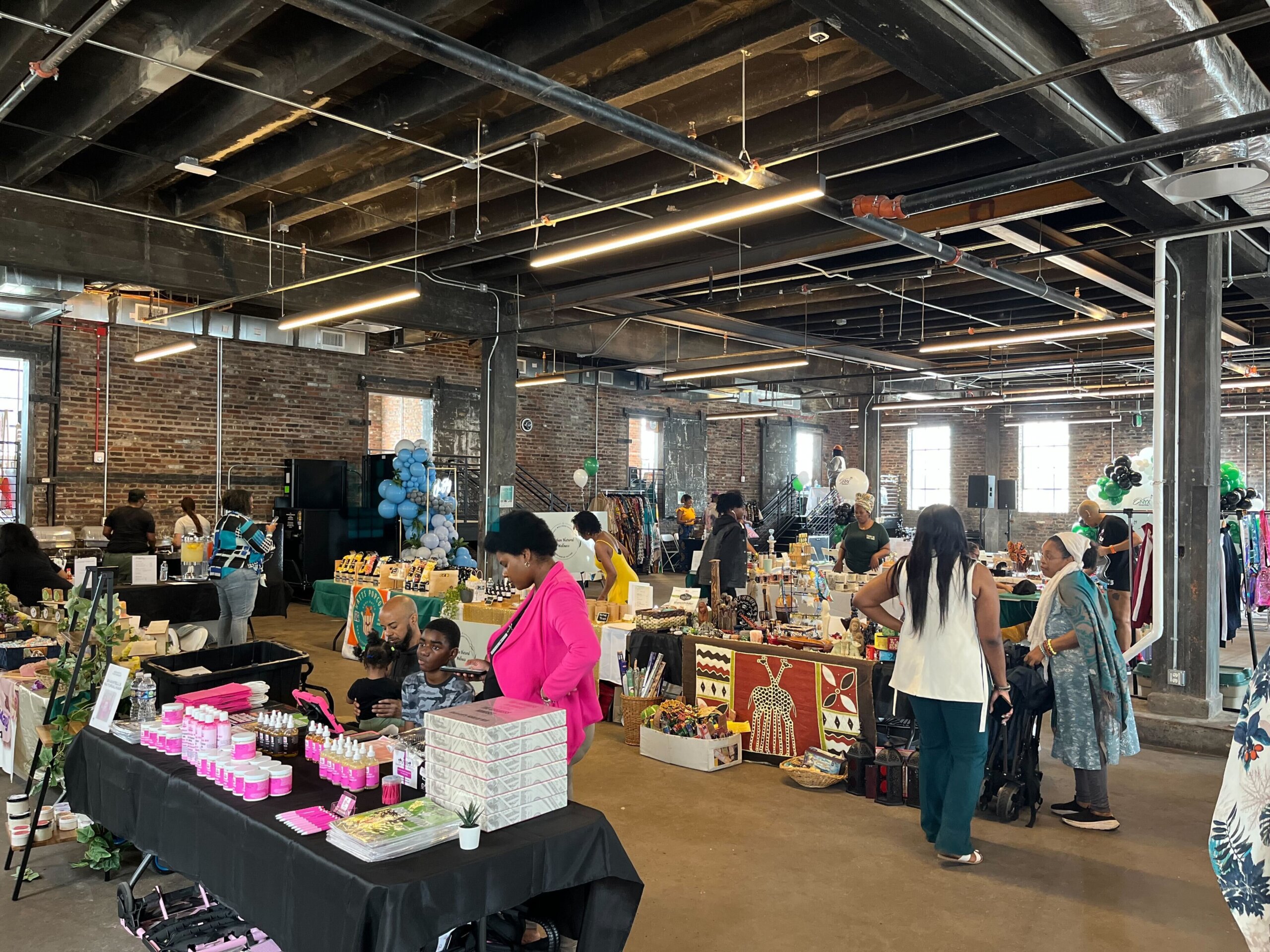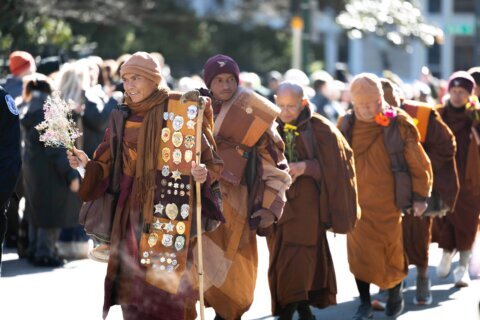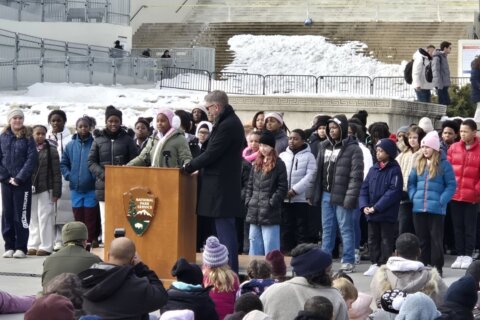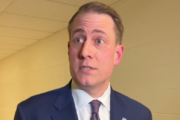
Music, food and yoga took over a corner of Northeast D.C. this weekend — all in the name of mental health.
The Onyx Therapy Group Mental Health Fair threw its second annual festival at the Union Market’s Auto Shop venue on Sunday.
Onyx CEO and founder LaNail Plummer said the fair’s aim was to connect the Black community to mental health services.
“It’s centered on making sure that we are allowing the community to access mental health properly,” Plummer said. “A lot of folks don’t know where to get mental health services, or even the normalization of mental health. They don’t necessarily know that there’s people out there that look like them, that talk like them, that come from cultures like them and that are doing this work. ”
To Plummer, mental health doesn’t just translate to a psychological crisis or breakdown. A person’s mental health extends to every part of their life.
“It’s about how we raise our children,” she said. “It’s about how we love our partners. It’s about how we love ourselves or how we engage in friendship. It’s about how we spend our money or how we see money.”
For Plummer, limiting counseling to times of crisis can be risky.
“We all need therapy, just like we all go to the dentist, we all go to the doctor, we all go get a hair cut or get our hair done,” Plummer said.
“So even if you’re the person who thinks, I don’t really have anything major going on in my life right now. You probably don’t have a major tooth issue either. But you go in for your checkup every six months.”
And therapy doesn’t only mean sitting on a coach with a professional. Plummer said it also means connecting with your community through dance, yoga and song.
“Our brain is designed in sensory experience, but the touch piece is important from a community aspect, because our brain activates in a different type of way when we are touched, and when we are around people,” Plummer said.
“So when people are feeling sad, depressed — simply being able to touch somebody triggers the brain in a different type of way to allow blood flow, to allow paths to open up, to allow us to feel differently, feel in terms of emotions in our amygdala, to think differently in terms of our prefrontal cortex.”
Plummer said the pandemic took away this sort of community therapy, making it important for people to re-engage with their communities and themselves.








